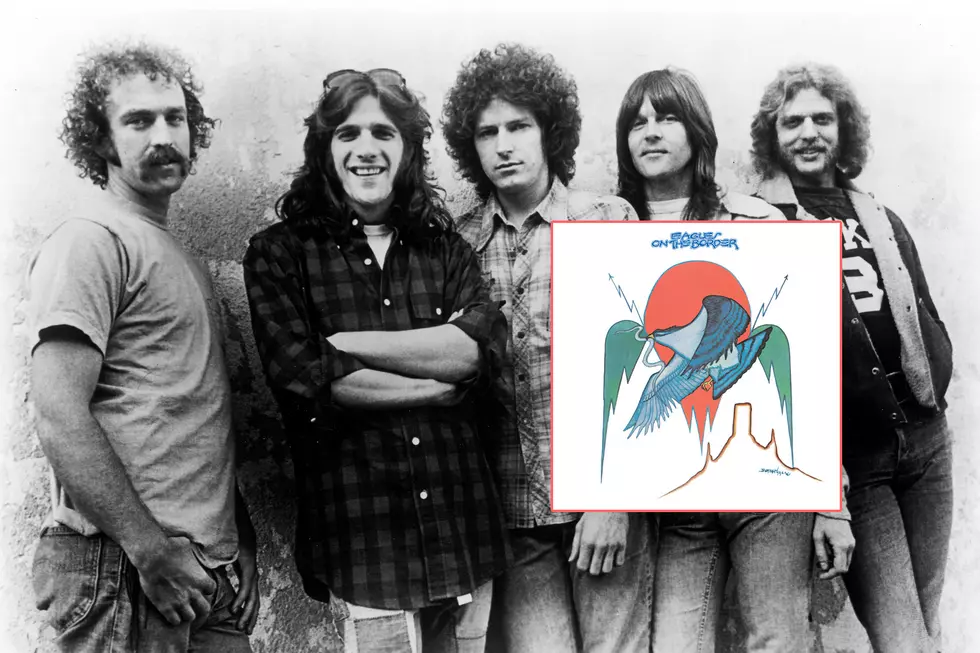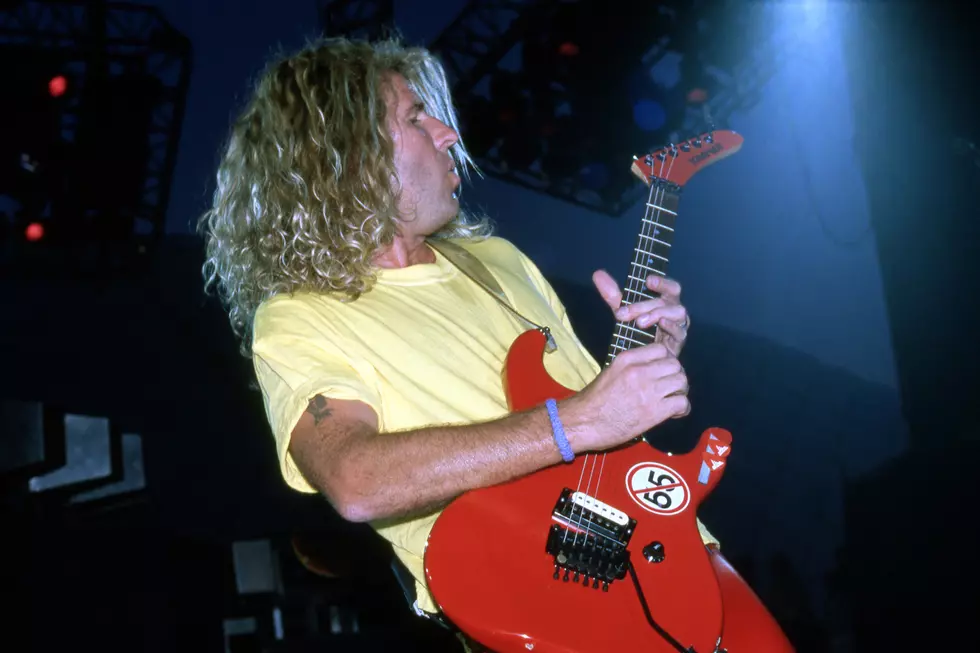
Why Eagles Fired Their Producer to Complete ‘On the Border’
When Eagles released their third album, On the Border, on March 22, 1974, it arrived amid a year of turmoil for the band.
They had just added Don Felder to the lineup, and soon after the record’s launch they fired manager Elliot Roberts to sign with Irving Azoff instead. But they’d already fired Glyn Johns, producer of their first two LPs, after three months of effort in the U.K. had produced unsatisfactory results.
“I just think it was time for a change,” Glenn Frey said cautiously in an interview with Crawdaddy (via the Guardian). Pointing out the band remained friends with Johns, he explained they’d felt a “need to do something more challenging.” He added of their previous collaborations: “There were no flies on either album.”
Johns described the six weeks of studio time as a “disaster area,” but insisted that had “nothing at all to do with me.” He continued: “I certainly got frustrated on some occasions, and pissed off because they wouldn’t grab the situation by the balls and get on with it. I don’t believe in kid-gloving artists.”
READ MORE: Ranking all 22 Don Henley Eagles Songs from the '70s
He asserted that the Eagles were suffering from “a lot of hang-ups, individually and with each other,” adding: “But what it boils down to is they weren’t ready to make another record.”
Frey alluded to what may really have been wrong when he identified the difference with new producer Bill Szymczyk, with whom they worked in the States: “Bill and Glyn are similar to each other in their own elements, but Szymczyk is a premier American rock’n’roll producer/engineer,” he said.
Don Henley agreed: “We just wanted to sound American instead of English.” He went on: “Glyn thought we were a nice, country-rock, semi-acoustic band, and every time we wanted to rock’n’roll he could name a thousand British bands that could do it better.
“There’s a lot less echo with Bill, for one thing. There’s more of a raw and funky presence. Glyn had a stamp he put on his records which is a deep echo that is really smooth like ice cream.”
Despite those reservations, Johns’ versions of “Best of My Love” and “You Never Cry Like a Lover” appeared on the album intact. “He did a good job on those; they needed that sound,” observed Henley, co-writer of both. But he said of their time in the U.K.: “We couldn’t think over there. We couldn’t create. We were too busy trying to find a good restaurant.”
What the Eagles Learned from Glyn Jones Before Firing Him
Times had clearly changed for the Eagles. Frey reflected: “We learned tons and tons from Glyn. How to cut through a lot of bullshit in arranging songs and how to shape them up real fast in the studio. He helped us take professional attitudes and mold them into professional recording artistry. He also taught me a lot about myself.”
On the Border reached No. 17 and sold 2 million copies, and it also gave the Eagles their first No. 1 hit – with Johns’ “Best of My Love.” The album’s success undoubtedly secured their move to the rockier sound they were looking for.
“We don’t go in for glitter or glam rock,” Henley said. “Ultimately the music survives and that’s what we’re most interested in. It will establish the image for you without even working at it.”
Listen to the Eagles’ ‘Best of My Love’
Eagles Lineup Changes: A Complete Guide
Gallery Credit: Nick DeRiso
More From Ultimate Classic Rock









